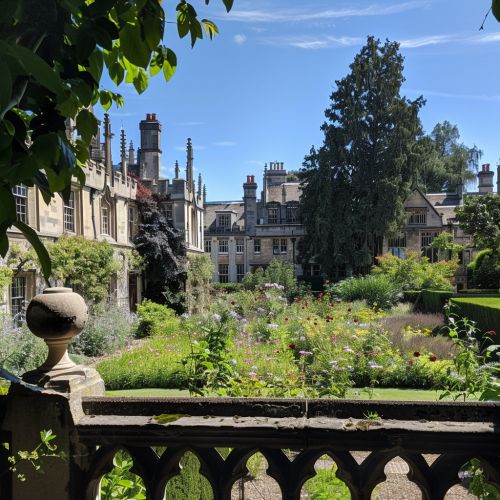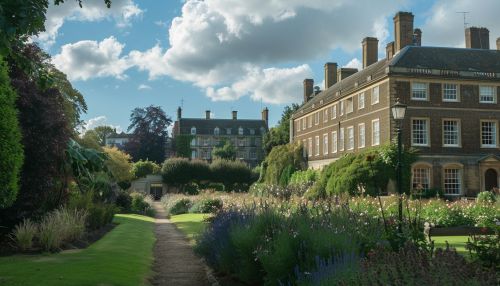Emmanuel College, Cambridge
History
Emmanuel College, Cambridge, was founded in 1584 by Sir Walter Mildmay, Chancellor of the Exchequer to Queen Elizabeth I. The college was established on the site of a former Dominican friary, which had been dissolved by Henry VIII in the Dissolution of the Monasteries. The college's original buildings made use of the existing Dominican structures, but over time these were gradually replaced and expanded. Emmanuel College is known for its long and storied history, with many notable alumni contributing to its prestige.


Buildings and Grounds
The college's main site is located in the centre of Cambridge, and is notable for its attractive gardens and ponds. The main court, known as Front Court, contains the chapel, the Hall, and the library. The chapel, built in the late 17th century, is a fine example of English Baroque architecture. The Hall, where students and fellows dine, dates from the 19th century, while the library, which houses a large collection of books and manuscripts, was built in the 20th century.
Academic Life
Emmanuel College is a constituent college of the University of Cambridge, and as such, its students are members of the university and participate in the wider academic life of the university. The college offers a broad range of subjects for study, and has a reputation for academic excellence. The college's fellows, who are members of the college's governing body, are active researchers and teachers, and many are leading figures in their fields.
Student Life
Student life at Emmanuel College is vibrant and diverse. The college has a strong tradition of student participation in sports, music, and the arts. The Emmanuel College Students' Union (ECSU) is the main student organisation and represents the interests of the college's undergraduate students. The college also has a Graduate Parlour, which represents the interests of graduate students.
Notable Alumni
Emmanuel College has a long list of notable alumni, including several Nobel laureates, politicians, and writers. Some of the most notable include John Harvard, the founder of Harvard University, and Thomas Young, the polymath who made significant contributions to the fields of vision, light, solid mechanics, energy, physiology, language, musical harmony, and Egyptology.
